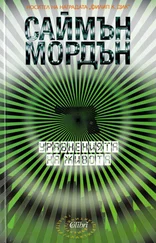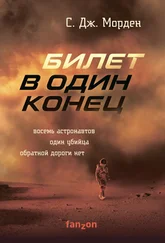There was silence in the room. All the assumed confidence gained from having a massive space-based missile defense system, backed up with ground stations and some really big lasers, drained away with an almost audible sucking noise.
“How,” said Mackensie eventually, “could this happen?”
Harris slowly turned in his seat at the long table and looked at the abandoned phone lying next to one of the consoles. “Petrovitch.”
“Explain.” Mackensie gazed with his hooded eyes at the arcs of oncoming missiles. “We are supposed to have the most secure network of any government. Are you telling me now that it is not? Frank?”
The National Security Adviser seemed temporarily paralyzed.
“Mister O’Connell, your president requires your opinion. Be so good as to provide it.”
O’Connell’s skin was gray, like he was already dead. “We know the AI is able to insert itself in command and control structures: it’s done it before. SkyShield—all our systems, in fact—may have been compromised. Even with the protocols we’ve put in place, it looks like it’s not enough.” He shrugged helplessly, and his hands trembled. “We did our best.”
“Then we close our electronic borders. Restart SkyShield.”
“All the reports I have tell me that our infrastructure is mostly or completely infected with an Anarchy-variant virus. Petrovitch says if we cut the AI off, we bankrupt the country. And there’s no guarantee that we would have a working computer to be able to get a command to SkyShield afterward.” O’Connell spoke very quietly, and the microphones strained to pick him up. “Just like that. It’s all over.”
Harris snatched up the phone and unmuted it. “You… you’ve left us defenseless.”
“How does it feel now, you bastard? Mackensie didn’t cook up this nonsense on his own. He doesn’t get to suffer alone. Put me on the speakers.”
“You’re killing us. Not just Mackensie, not just the American people. Everyone, everywhere. You know what’s going to happen next?”
“Yeah. You get down on your knees and beg to Michael. After the shit you’ve put him through, it’s the least you can do.”
“The president will order the launch of our own missiles.”
“Or you could do that. Seems a little drastic, don’t you think?”
Harris’ grip on the phone was threatening to crack the plastic. “Drastic? We are under attack.”
“Are you? Are you really?”
Harris paused, then said: “Petrovitch, is the United States under attack?”
“Well, now. On the one hand, you can detect hundreds of missiles and thousands of warheads, all heading straight for you. On the other hand, what you’re seeing could be what we want you to see.”
“And how are we supposed to tell the difference?”
“You know the answer to that question already, Harris. Hit the kill switch and pray to whichever god you worship that the missiles disappear. Or you could let me talk to the president.”
Harris cupped his hand over the phone. “Mister President: Petrovitch has implied that this is an AI simulation, and no missiles have been launched.” He sounded like a man offered the hope of reprieve at the foot of the gallows. He actually grinned.
“Then what,” asked Mackensie, his expression sour, “are those?” He waved his hand at the screens in front of him, that told him only of the end of the world. “Are we to take the word of some punk street kid over our own satellites?”
Harris’ grin slipped away. He glanced at O’Connell for support, who pinched the bridge of his nose hard enough to leave white marks.
“It’s possible… Mister President; the Chinese have no reason to launch. Russia has no reason to launch. The EU—what are they going to get out of this? It makes no sense. Brazen it out, sir. All we need to do is absolutely nothing.”
“Nothing? We have failed to destroy the artificial intelligence. We have failed to neutralize Petrovitch. We have failed to prevent SkyShield from being sabotaged. We have failed to protect our own network from infection. How much less would you like the government of the United States of America to do?”
“He’s provoking us.” Harris thrust the phone in Mackensie’s direction, and lost it, caught between terror and duty. “Petrovitch is playing us. God damn it, what if none of this is real?”
“That’ll be twenty bucks, Mister Harris. I’ll have it taken out of your final pay check. You are relieved of your position.” Mackensie steepled his fingers, showing the liver spots on the backs of his hands, and glanced up at his aide. “Please escort the former Secretary of Defense from the Situation Room.”
He watched impassively as Harris was ushered from the room at gunpoint. The other men present watched, pale and drained.
“It is perfectly clear that Petrovitch wishes us dead, and will do or say anything that will delay our own launch until we are no longer in a position to retaliate effectively. I refuse to listen to such counsel. The way ahead is clear: we do this by the book.”
A man with a briefcase stepped up beside Mackensie, and laid it on the table. He opened it up and passed his president a solid plastic rectangle as big as a postcard. Mackensie flexed his fingers and cracked the plastic slab along pre-scored lines. Inside was a long strip of paper, printed with a combination of numbers and letters in a long sequence.
He laid the codes on the table in front of him. “The first and greatest duty a government has is to protect the integrity of the nation it serves. If that has been denied to us, then our last act ought properly be to strike out against a world bent on destroying us, as it has been since our creation. We will not go quietly as they hope, but we will fight even as we die.”
He cleared his throat again and readied himself to read.
Admiral Arendt looked at the glowing lines on the wall screens. The first missiles would be hitting the Alaskan airbases in less than thirty seconds. “Get me Elmendorf,” he said to the watch officer.
The officer slid back to his console and with two presses of his touch screen, had the duty desk. “This is the NSC. Ah, sheet three-five yellow. Seven Alpha Foxtrot November Niner Papa Lima Zero.”
The man in the blue uniform riffled through the yellow pad in front of him. “Elmendorf. Romeo Bravo Six Kilo Eight Juliet Tango Six Hotel.”
The watch officer ran his finger along the second line of code. “Admiral? Connection to Elmendorf confirmed. At least, it looks that way.”
Arendt leaned over the younger man’s shoulder. “Hello, son. I need you just to stay on this line as long as you can.”
“Yes sir.”
The screen went blank, then reverted to the previous window. On the main map, Elmendorf winked from blue to gray, followed a moment later by Eielson.
Snatching up the abandoned handset, Arendt spoke through clenched teeth. “Petrovitch, tell me we haven’t just lost the Eleventh Air Force.”
“You haven’t lost the Eleventh Air Force. Neither are you about to lose the western seaboard. Scary though, isn’t it? Can you smell the fear yet?”
“You have to stop this. The president is releasing the launch codes.”
“Yeah. I know.”
“Can he launch?” asked Arendt. “If this is fake, then he’s not really giving the codes to NORAD, is he?”
“No,” said Petrovitch, “he’s giving them to me.”
Arendt dropped the phone. “Mister President, stop the sequence.”
Mackensie turned his head slowly toward his military adviser and fixed him with a withering stare. “Malcolm, I think you forget yourself.”
“That’s not NORAD,” said the admiral, his finger wavering toward the screen where a smart air force officer was waiting on the last two digits of the launch code. “That’s the AI. You’re telling the enemy the gold codes.”
Читать дальше

![Саймон Морден - Билет в никуда [litres]](/books/388091/sajmon-morden-bilet-v-nikuda-litres-thumb.webp)
![Саймон Морден - Билет в один конец [litres]](/books/395533/sajmon-morden-bilet-v-odin-konec-litres-thumb.webp)









